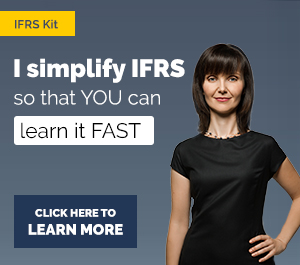IFRS 2 Share-based Payment
International Financial Reporting Standard 2
Overview of IFRS 2
- Issued: in 2004, followed by amendments
- Effective date: 1 January 2005
- What it does:
- It deals with 3 types of share-based payment transactions:
- Equity-settled share-based payment transactions: an entity receives goods or services in exchange for equity instruments. For example, providing share options to employees as a part of their remuneration package.
- Cash-settled share-based payment transactions: an entity receives or acquires goods or services in exchange for liabilities to these suppliers. Liabilities are in amounts based on the price or value of entity’s shares or other equity instruments. For example, a company grants share appreciation rights to their employees, whereby employees will be entitled to future cash payment based on increase of company’s share price over some specified period of time.
- Share-based payment transactions with cash alternatives: an entity receives or acquires goods or services in exchange for either cash settlement or equity instrument.
- It deals with 3 types of share-based payment transactions:
- Separate attention is dedicated to share-based payment transactions among group entities.
- IFRS 2 prescribes how various transactions shall be measured and recognized, lists all necessary disclosures and provides application guidance on various situations.
Articles about IFRS 2
Other Resources
- IFRS Kit - learn IFRS in 150+ videos, 150+ excel case studies, quizzes, certificates
- Expected Credit Loss for Accountants - highly specialized course focused on ECL under IFRS 9 with step-by-step example related to trade receivables, many practical insights included.


